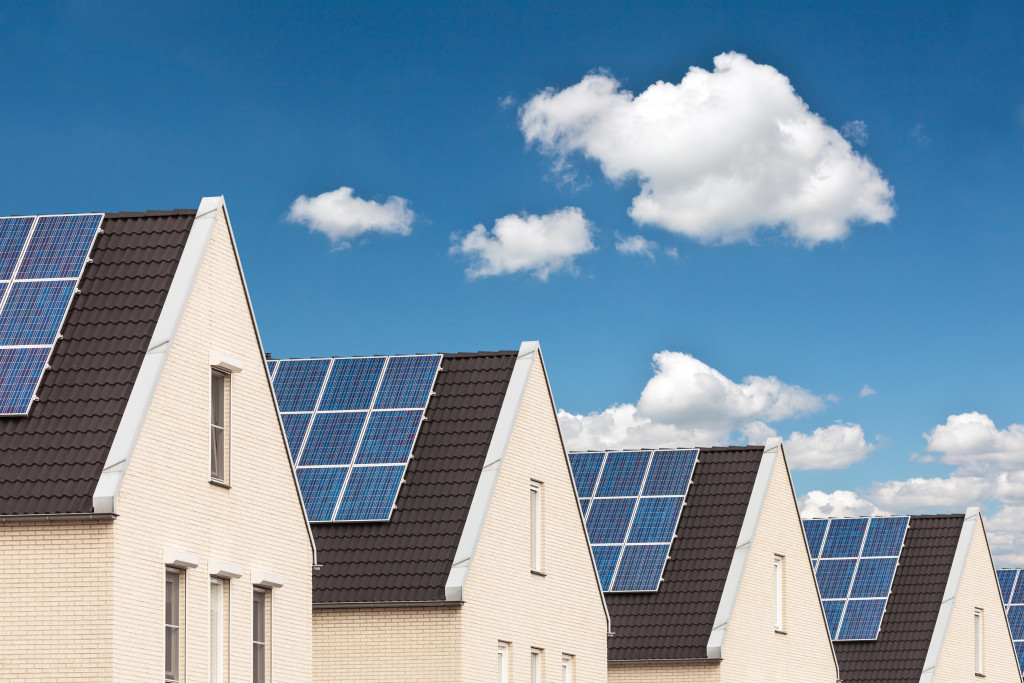Winter of 2021 to 2022 will be colder than before in most of the United States, according to AccuWeather forecasts. In the northeastern and north-central parts of the country and the Great Lakes, average winter temperatures will be lower than normal by one to three degrees Fahrenheit. In the country’s southern parts, the cold will come later in the winter, but it will also be the worst with the possibility of winter storms. This covers Texas, Arkansas, and eastern Oklahoma.
Colder weather means people need more energy to heat their homes. Unfortunately, heating your household this winter will be up to 54 percent more expensive than last year. According to The Guardian, this is due to the worldwide increase in the prices of natural gas, heating oil, and other fuels. The price of natural gas in the U.S. is now 90 percent higher than that of the same time last year and is at the highest since 2014. Heating oil’s wholesale price is more than double that of last year’s.
Theh most used fuel for heating by almost half of the homes in the country is natural gas. Users will be paying 30 percent more compared to last year, to reach an average of $746. About 41 percent of homes use electricity for heating. They will be paying six percent more this year to reach $1,268. Some four percent of homes use heating oil. They will be paying 43 percent more or over $500 more to reach $1,734. About five percent of homes use propane gas for heating, and they will incur the highest increase at 54 percent.

Home Modifications to Lower Energy Usage
Since nothing can be done about the rise in energy costs, households must lower energy usage instead, even during the coldest months. Do an energy audit to check where the house needs modification.
Insulation is the most basic way to retain heat within the home while keeping out the cold. This will have a major impact on lowering heating needs. If your home’s insulation is insufficient or outdated, you need to replace it.
One of the most effective types is do-it-yourself (DIY) or professional spray foam installation from the attic to the basement and crawlspace. It is best to hire a professional, though, to ensure that the home is properly sealed. Also, have a professional seal air leaks using caulking and weather stripping around doors, windows, and small openings around the plumbing, ducts, or electrical wirings.
Sell your current household equipment and appliances and replace them with Energy Star certified ones. Include all lightbulbs. The additional outlay will be recouped quickly because the new equipment and appliances will be much more energy-efficient. Regularly clean the filters in your heating, ventilation, and air conditioning (HVAC) system to further lower energy usage.
Replace your windowpanes with Energy Star certified glass that also provides insulation. Hang thick curtains for further protection from the cold.
Assistance for Energy Needs
People with very low incomes can search for government grants or subsidies related to energy. The Weatherization Assistance Program (WAP) of the U.S. Department of Energy (DOE) provides low-income households with home improvements and upgrades to increase energy efficiency. Applicants must have an income that is not more than 60 percent of their state’s median income. Families with a member aged over 60, a member with a disability, or children are prioritized.
The Low-Income Home Energy Assistance Program (LIHEAP) of the U.S. Department of Health and Human Services (HHS) helps eligible households with energy-related repairs, home weatherization, and payment of energy bills for heating or cooling. The gross annual household income cap depends on the number of residents.
For a household with eight residents, it is $66,990. Eligibility requirements may vary by locality, though. Also, once the LIHEAP funds for the year are used up, the program must wait for Congress to give more funds the following year. Hence, among eligible applicants, only about 20 percent receive this benefit.
Low-income households that cannot get into LIHEAP can check for similar programs with local social service agencies and nonprofit organizations. People with disabilities receiving supplemental security income (SSI) can check with the electric, gas, or oil company for other payment options.
Winter is Coming
There is not much time left before winter comes. Households must act now to prepare for the bitter cold and lower the energy used for heating. Energy efficiency in the home will cut costs without compromising the health of the occupants. The use of less energy is also beneficial to the environment. Home weatherization is a must for the good of everyone.



